THIS CONTENT IS BROUGHT TO YOU BY The Norwegian School of Sport Sciences - read more
Kristine suffered permanent brain damage at 22:
"Life can still be good even if you don’t fully recover"
Kristine has found a whole new sense of joy and mastery in life after being both a participant and mentor at Brain Camp.
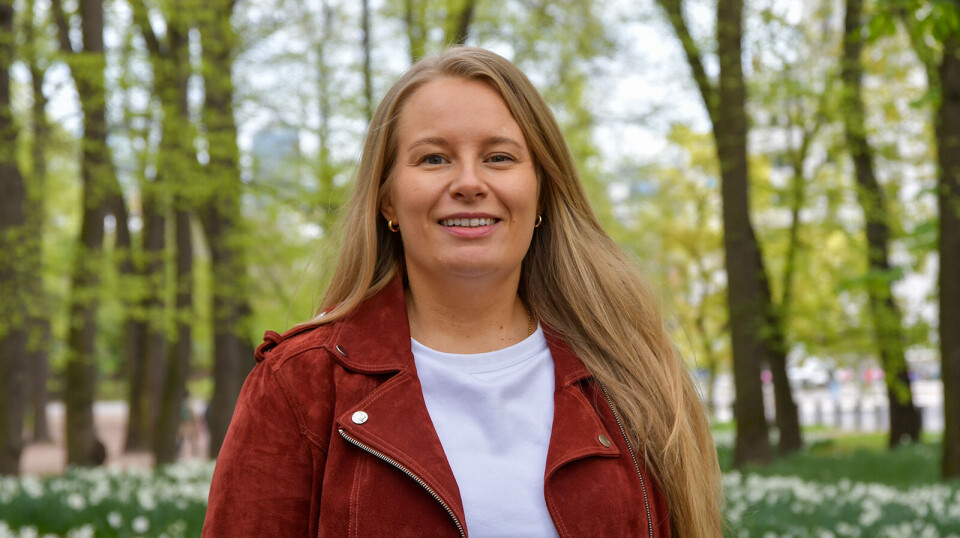
Kristine was 22 and on the path she had dreamed her adult life would take.
She was deep into her law studies and enjoying the kind of social life only people in their 20s can.
But everything changed during a work party at her part-time job.
Kristine was struck on the head by a metal object and suffered a concussion.
“It completely floored me. I never fully recovered. At first, I thought I was just lazy. I would go to lectures, but it was absolutely impossible to keep up. My body just said stop,” she says.
Adjusting to life with a brain injury
Her medical journey was complex, but in short, it eventually became clear that Kristine had developed a rare condition called idiopathic intracranial hypertension.
This condition causes increased pressure in the brain. There's also a risk of vision loss.
Kristine underwent surgery to have a VP shunt inserted to regulate the pressure in her brain. A VP shunt is a medical device used to drain excess cerebrospinal fluid from the brain and redirect it to the abdominal cavity.
The dreams Kristine had for her 20s gave way to fatigue, migraines, and a struggle to be believed by the healthcare system.
It was a long and difficult realisation, but Kristine eventually came to terms with the fact that she had to learn to live with a permanent brain injury.
It wasn’t until her rehabilitation at Sunnaas Hospital and later at Brain Camp that she found meaning in her new life.
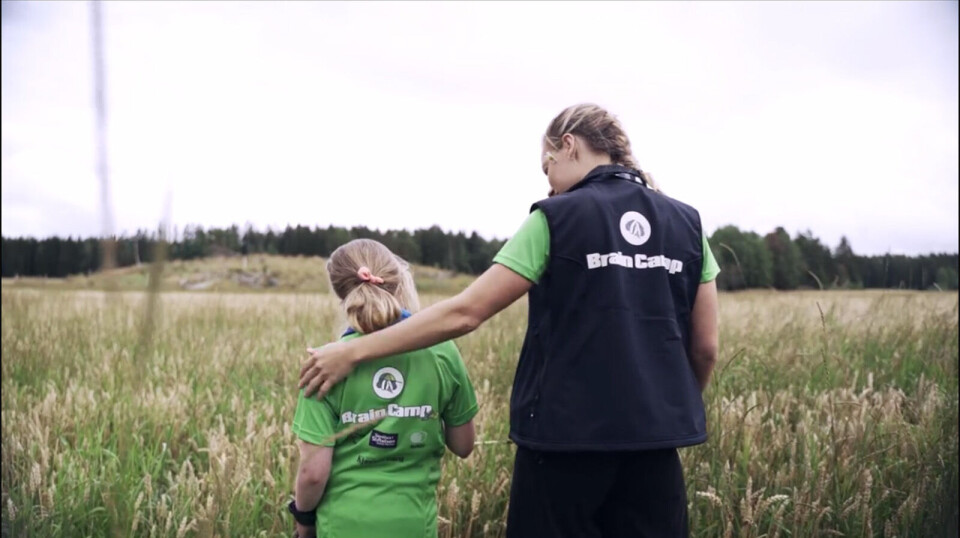
The stigma of talking about brain injuries
Pia Wedege is a researcher at the Norwegian School of Sport Science's (NIH) Department of Sport and Social Sciences. In recent years, she has studied active rehabilitation camps called Brain Camp, which Kristine has participated in.
The camps are organised by the Sunnaas Foundation for children, youth, and adults who have acquired brain injuries.
An acquired brain injury is neither congenital nor progressive, but rather the result of trauma or illness, like in Kristine's case.
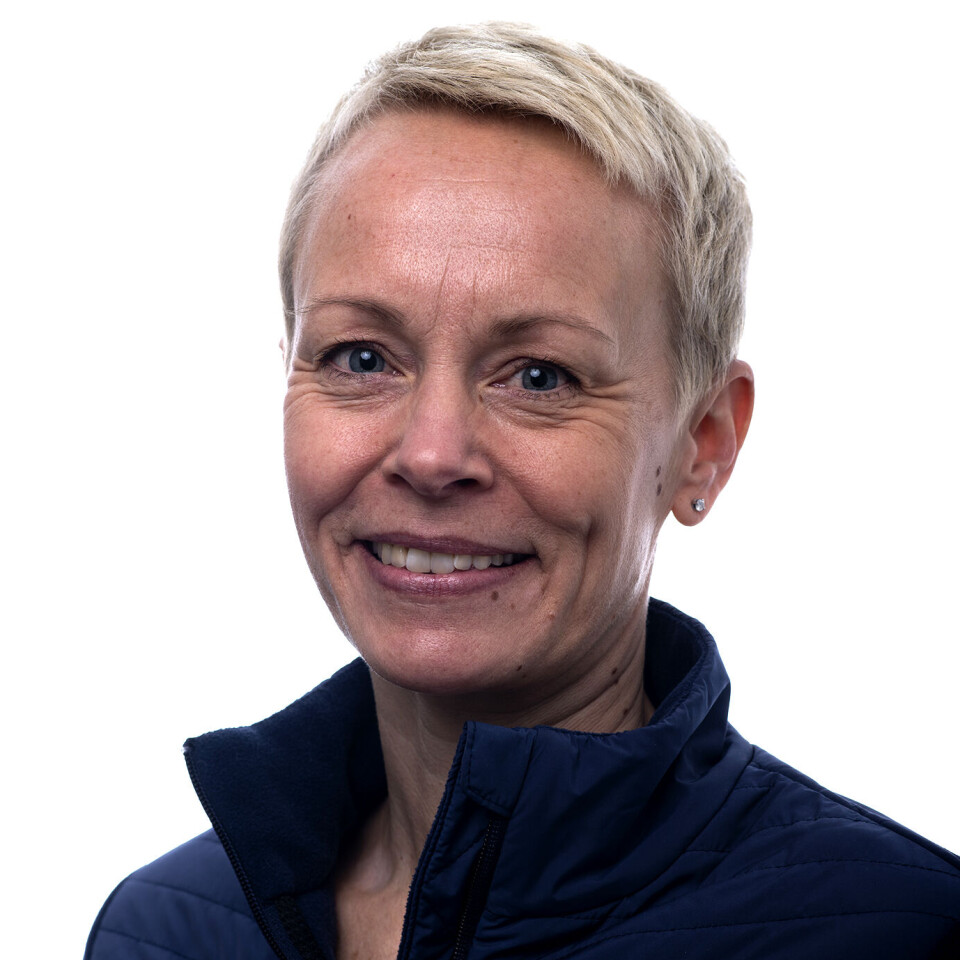
“There's absolutely a stigma tied to having a brain injury. Many people even use it as an insult. For a lot of individuals, it’s very difficult to openly say, ‘I have a brain injury.’ That's one of the main reasons participants find these camps so important,” explains Wedege.
Activity creates a safe space for conversation
At Brain Camp, participants meet peers or mentors – individuals who also have brain injuries and who have previously attended the camp.
Wedege, who is also a physiotherapist, has focused her research specifically on the role of mentorship (peer support) and its significance, something not widely studied before.
Alongside mentors and professional instructors, participants get to try various sports and recreational activities.
“Engaging in activities together provides a great setting for sharing experiences. When you're sitting in a kayak or standing on a ski slope, many find it much easier to discuss difficult topics. Additionally, many participants haven’t dared to try activities they used to enjoy before their brain injury,” says Wedege.
Never thought she would dare to hit the slopes again
That was the case for Kristine too. Before the life-changing work party in her early 20s, snowboarding had been a vital part of her identity.
When she secured a spot at the winter version of Brain Camp and saw that the programme included two days on the slopes, fear immediately set in.
She even contacted Rikshospitalet to seek reassurance, worried it might be life-threatening.
“I have a shunt in my brain and was terrified of falling and getting another concussion,” she says.
But her plan to avoid the slopes didn’t work. The hospital assured her it would be fine as long as she wore a helmet.
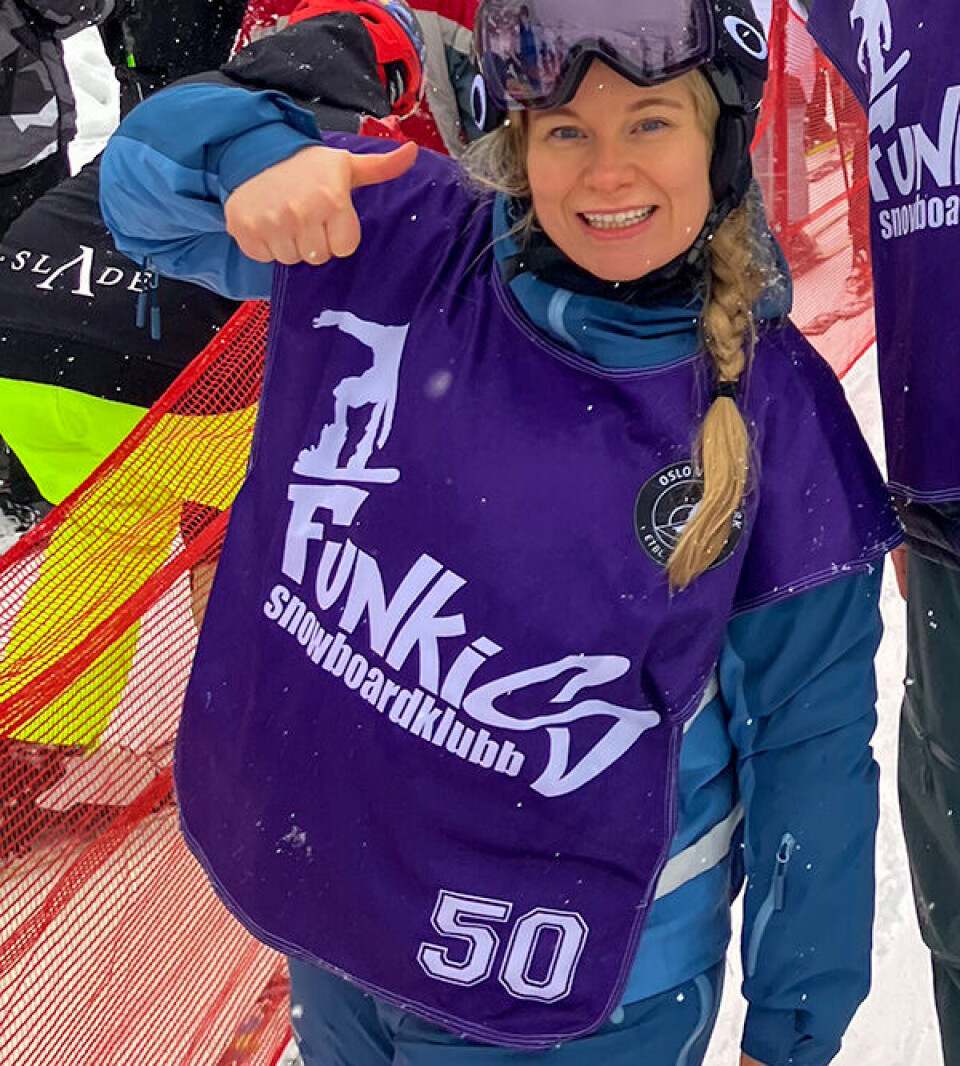
After a pep talk from her mentor and instructor, she reluctantly agreed to try a test run.
“Suddenly, I was just riding down the slope, and the turns came naturally. It was an incredible feeling,” Kristine says, pulling out notes she wrote that same day.
“The feeling of surfing down the slope, daring to take that risk, and simultaneously reviving a part of my identity was absolutely amazing,” she reads aloud.
More motivated to take part in society again
What does it mean for participants at a camp like this to receive support from peers who may have faced the same challenges and understand what it’s like to live with a brain injury?
“There are many examples like Kristine’s. One boy said, ‘I thought I was completely alone, but now I see there are so many others like me’,” says Wedege.
Statements like this have shown the researcher that this work holds real value for both participants and society.
“Both participants and mentors experienced a sense of mastery through the activities. They became more motivated to be physically active and take part in their local communities after the camp,” says Wedege.
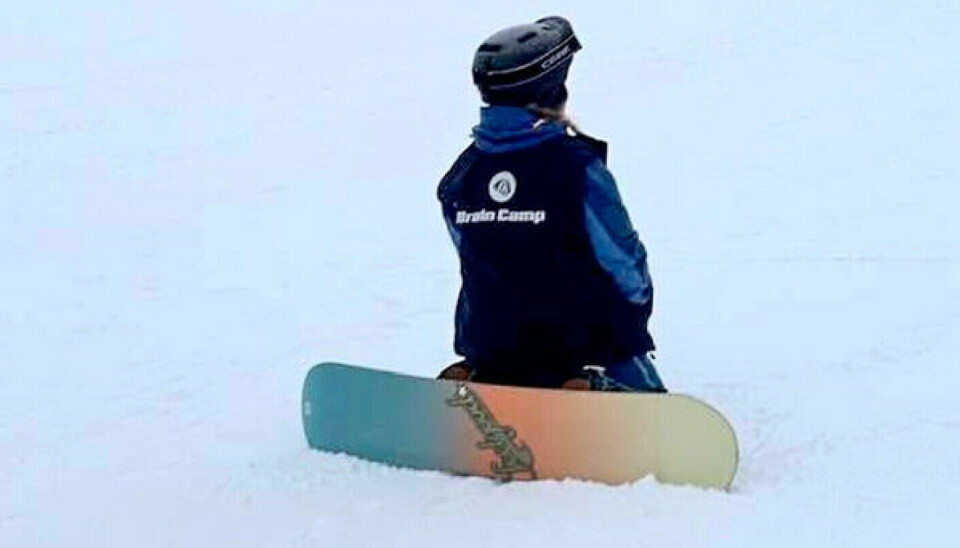
Participants also developed a deeper understanding of their conditions, improved coping strategies for activities and daily life, greater self-confidence, and larger social networks.
The results show that participating in an active rehabilitation camp is beneficial for both those who receive support and those who serve as mentors.
Could the role of peer support become even more important in other areas of healthcare, especially considering the shortage of healthcare workers?
“It’s already being used today, but it could be used much more. Medical treatments have improved, and more people are living longer with illnesses than before. I believe peer support could be a golden opportunity for municipalities to support these individuals where they live,” Wedege explains.
The mentor role is invaluable
Kristine can wholeheartedly attest to the fact that becoming a peer supporter or mentor has brought her immense personal growth and fulfilment.
After participating in the camp herself, she was invited to join the mentorship programme and eventually become a mentor at Brain Camp.
There, she used her own experiences – like overcoming fear on the slopes and speaking in front of large groups – to help others.
“At Brain Camp, I experienced a level of mastery I never thought possible, in areas where I thought I'd never feel competent again,” she says.
Since attending the camp, snowboarding has once again become an important part of Kristine’s life. She has joined the Funkis Snowboard Club and participates in regular training sessions. She has also started kayaking, surfing, cross-country skiing, and cycling.
These activities have given her purpose and joy in her everyday life.
“The sense of mastery I gained at camp has made me confident enough to take on challenges in life. That's been the biggest difference for me. It shifted my perspective from ‘this is too overwhelming’ to ‘how can I adapt this so I can succeed too?’” she says.
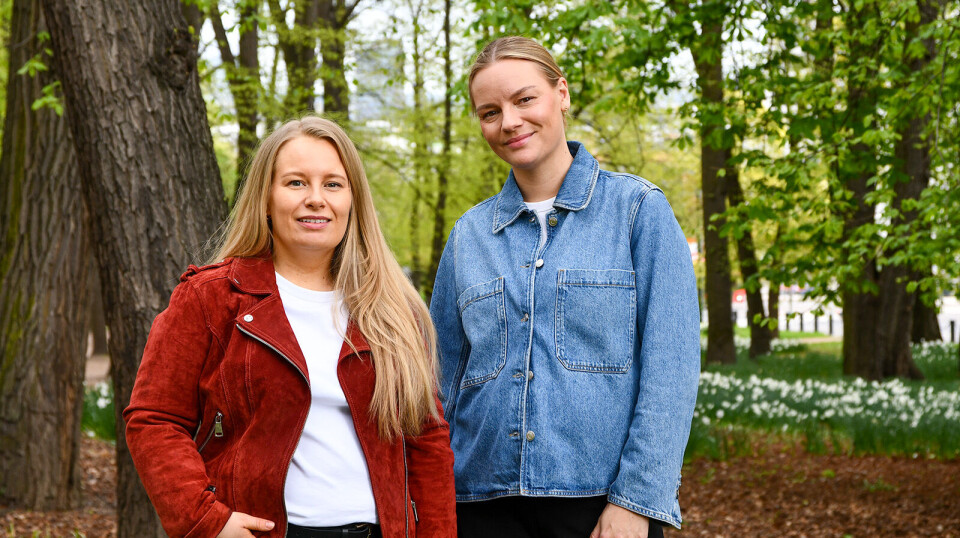
Anine Johansen, the project manager at the Sunnaas Foundation, works closely with Brain Camp. She herself sustained a brain injury at the age of 23 and has previously shared her story in Norwegian media.
By becoming a peer supporter, Kristine found her way back into the workforce. Now, at 32 years old, she sees the immense value the camp and the mentorship programme bring to the lucky individuals who get a spot each year.
“These programmes build resources within people. They help them navigate transitions, make decisions, take responsibility for themselves and others. Some gain tools that help them return to work, others to get active again or reconnect with family,” explains Johansen.
You don’t need to be fully healed to move forwards
Kristine hopes to inspire others struggling with fatigue and similar diagnoses.
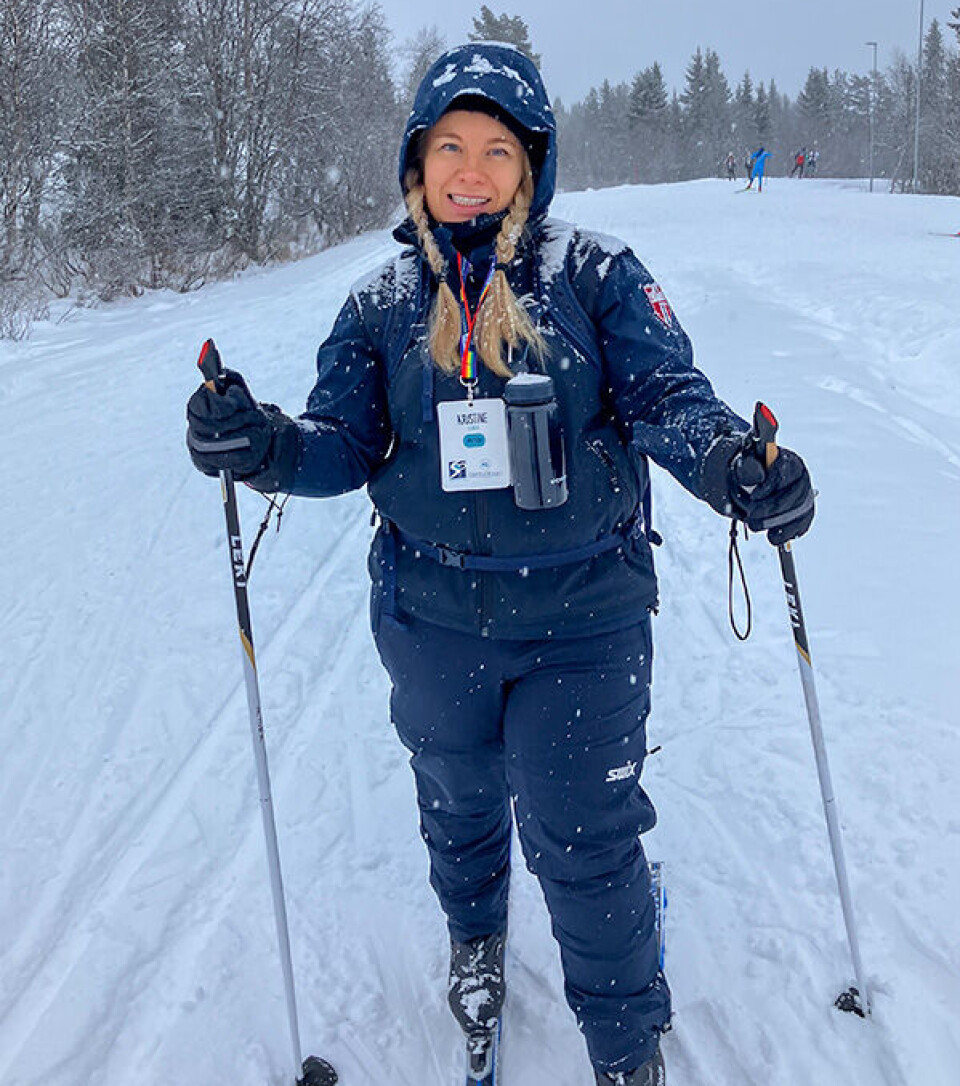
“Many people with my two diagnoses live very restricted lives. But you don’t have to wait to be fully healed or healthier. You can also manage the resources you have in a better way. As long as you're structured and regulate your activities well, almost anything is possible,” she says.
Kristine has realised that life can still be good, even if she never fully recovers.
Reference:
Wdege, P. Pivotal moments in needs-supportive environments: Experiences of Active Rehabilitation camps for individuals with acquired brain injury, Doctoral dissertation at the Norwegian School of Sports Science, 2025.
———
Read the Norwegian version of this article on forskning.no
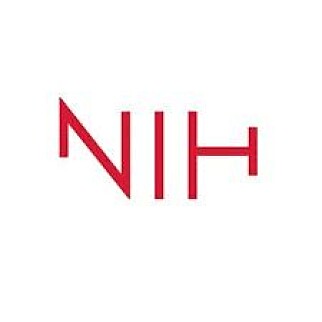
This content is paid for and presented by The Norwegian School of Sport Sciences
This content is created by The Norwegian School of Sport Sciences' communication staff, who use this platform to communicate science and share results from research with the public. The Norwegian School of Sport Sciences is one of more than 80 owners of ScienceNorway.no. Read more here.
More content from The Norwegian School of Sport Sciences:
-
Football expert wants to change how people watch football at home
-
Para sports: "The sports community was my absolute saving grace"
-
Cancer survivor Monica trained for five months: The results are remarkable
-
What you should know about the syndrome affecting many young athletes
-
New findings on how athletes make the best decisions
-
Is the body just as strong after seven days of fasting? The findings surprised researchers




































